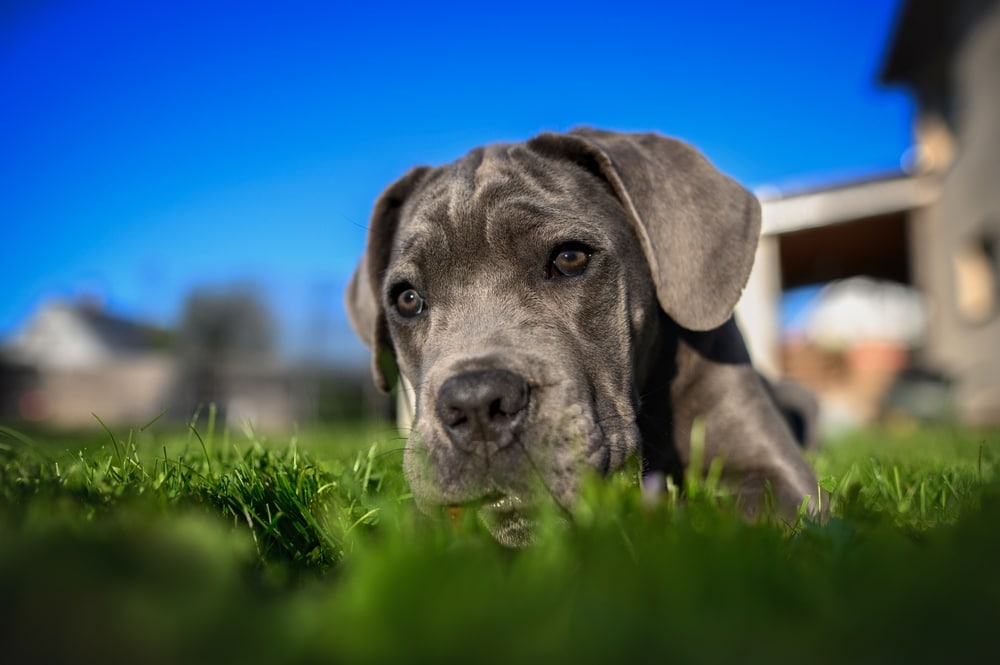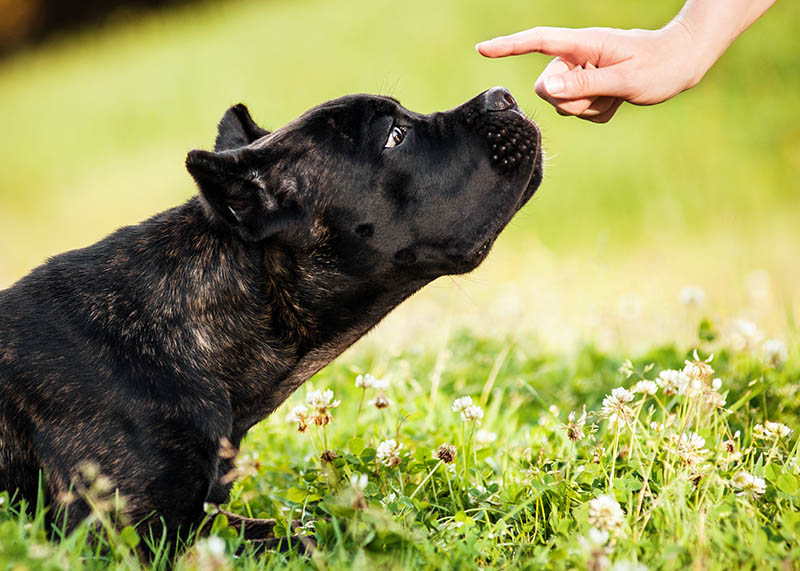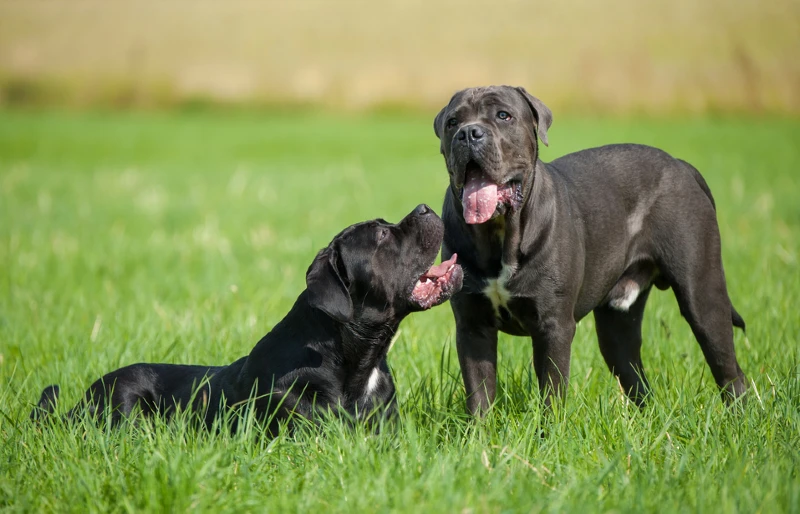Sadly, the Cane Corso isn’t hypoallergenic. However, no dog is truly hypoallergenic—at least as far as science is concerned1. All dogs produce some allergens, and whether or not the dog sheds doesn’t seem to change where or not the canine produces allergens.
Read on below to find out more.
Can I Own a Cane Corso If I Have Dog Allergies?
Unlike what’s commonly believed, those with dog allergies aren’t allergic to fur. However, Cane Corsos also shed. Therefore, if you aren’t a fan of dog hair, you probably won’t be a fan of the Cane Corso.
However, it’s worth noting that individual dogs may produce different amounts of allergens, and some people with allergies may be less sensitive to certain breeds or individual dogs. If you are considering getting a Cane Corso and have allergies, it’s important to spend some time with the individual dog before deciding to see if you have any adverse reactions.

How Do Dog Allergies Work?
When dealing with a canine allergy, it is important to note that there’s nothing wrong with your dog. An allergic reaction develops when our immune system incorrectly identifies something that is typically harmless as “bad” and produces antibodies against the allergen. For folks dealing with a dog allergy, this response happens to one of several proteins dogs naturally produce. The most common of these proteins is known as Can f1, found in canine saliva and dander. Canine saliva adheres to fur when dogs groom themselves, permeating the home environment as the dog sheds. Similarly, dander accumulates on the dog’s skin and hair, and is left behind when the dog sheds or shakes.
Those allergic to dogs trigger an immune response to these allergens, leading to typical allergy symptoms. Some individuals have worse allergies than others. It may be a minor inconvenience, or it can be rather serious.
Why Aren’t Cane Corsos Hypoallergenic?
Cane Corsos shed, which prevents them from meeting the popular definition of hypoallergenic. However, no dog is truly hypoallergenic. All dog breeds produce proteins to some extent. Proteins are found in a dog’s skin, saliva, and urine. Until there is a dog that doesn’t have any of these things, dogs will produce allergens.
It is thought that some dog breeds may produce fewer allergens than others. However, this is mostly false and often depends on the individual dog rather than the breed. Therefore, even dog owners with allergies may be able to live with some dogs. Sadly, there aren’t many studies on this topic, and none have looked at the Cane Corso, specifically.
Remember, those with allergies are often allergic to specific dogs—not all dogs. Therefore, some dogs may produce fewer allergy symptoms than others. Someone allergic to one Cane Corso may not be allergic to another.

Do Cane Corsos Shed?
Cane Corsos have a short, rough coat that sheds throughout the year. Despite their short fur, they have a double coat, which means they often shed continuously throughout the year.
Regular brushing and grooming can help manage their shedding and keep their coat healthy and shiny. You should brush your Cane Corso at least every few days. Grooming and brushing almost daily during heavy shedding seasons (usually the spring and fall) is recommended.
Minimizing Dog Allergies
Minimizing dog allergies is possible, allowing those with allergies to adopt dogs like the Cane Corso. However, some extra work is involved, so be sure you have the time before adopting a canine when you have dog allergies. If you have an allergy to dogs, the following tips may help you better manage your allergies:
- Discuss medication options with your doctor, depending on the severity of your signs
- Regularly clean and wipe down surfaces, such as walls, counters, tabletops, and baseboards.
- Consider investing in an upholstery vacuum with a HEPA filter. Vacuum thoroughly around the house at least once or twice a week.
- Replace any carpets in your house with smooth flooring wherever possible. Carpets are the primary “reservoirs” of allergens in your home and contain far more allergens than smooth surfaces such as tile, wood, or linoleum.
- Professional steam cleaning is recommended for carpets that can’t be replaced.
- A HEPA air filter is your best friend if you find yourself suffering from dog allergies.
- It’s always a good idea to establish a dog-free zone or area in your house where your dog isn’t allowed.
- Practice washing your hands before and after you interact with your dog to limit the amount of allergens that are on your hands. Avoid touching your face if you just touched your pup.
- Since pet dander is on your clothing and other fabrics like your sheets, pillows, dog beds, and blankets, frequent laundry washes will remove quite a large amount of dander.
Conclusion
Cane Corsos shed quite a bit, so they don’t fit into the traditional hypoallergenic definition. However, those with allergies are allergic to a dog’s dander, saliva, and urine—not the fur. Therefore, no dog is 100% hypoallergenic. They can all trigger allergies in individuals sensitive to specific proteins produced by canines.
Luckily, you can do a few things to minimize your allergic reaction. Keeping your dog out of your bedroom, getting an air purifier, and keeping your home clean can prevent your allergen exposure and subsequent signs.
Furthermore, those with allergies aren’t necessarily allergic to every dog. Individual dogs produce different amounts of proteins, and most people are only allergic to one or two such proteins. You might get lucky and end up with a dog that doesn’t produce high amounts of the proteins you may be allergic to.
Featured Image Credit: Dora Zett, Shutterstock












